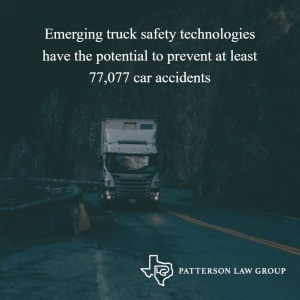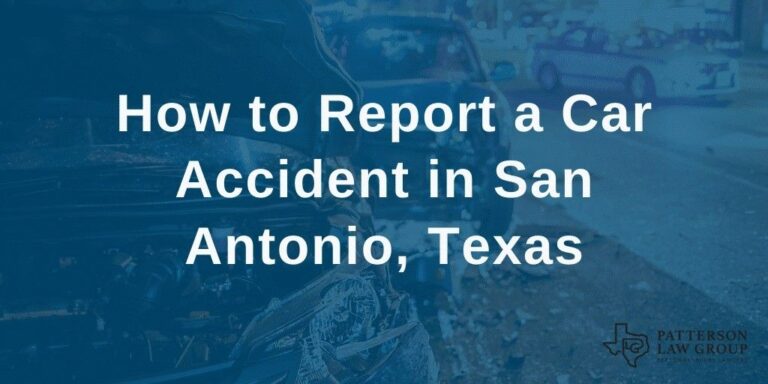In 2015 in the United States, there were more than 400,000 truck crashes that resulted in more than 116,000 injuries and 4,000 deaths. Recently, the AAA Foundation for Traffic Safety released a report that stated truck safety technologies have the potential to prevent at least 77,077 car accidents. This same report, Leveraging Large Truck Technology and Engineering to Realize Safety Gains, suggested as many as 23,275 injuries and 500 fatalities could be avoided per year as well with the installation of truck safety devices and systems. The report examined many safety benefits of installing 4 advanced safety technologies in new and existing big rigs, and it weighed the costs of the technologies.
AAA recommended that every large truck, whether already on the road or a new truck, be equipped with the technologies that would improve road safety. It emphasized that these technologies were cost effective and would have a highly positive impact overall on our country’s highways.
Types of Truck Safety Technology
Modern truck safety technology goes well beyond truck braking systems and louder horns. Many of these systems offer enhanced versions of the technology available on newer model passenger cars. For example, a well-equipped modern truck might feature the following:
- Backup and blind spot cameras give drivers better information about vehicles and obstacles near the truck.
- Lane change warning systems that tell the driver when they are about to cross a marked highway lane.
- Motion sensors and forward collision warning systems, such as “LiDAR,” tie into a truck’s braking system and initiate a stop if the driver is too close to a vehicle in front of the truck.
- Wireless communication systems enable several trucks to coordinate their driving without getting too close to each other.
- Fatigue detection systems sense when a driver is nodding off or distracted.
- Electronic stability control systems that minimize the risks of fishtailing and jack-knifing and enhanced artificial intelligence that reduces the risk of improper cargo loading.
Many newer trucks on highways in Texas and elsewhere in the country are already using some or all of these safety systems, and many older trucks are being retrofitted with them. In addition, shipping and logistics companies are utilizing enhanced training techniques and incentives to encourage drivers to use these systems to their maximum benefit. This would include identifying specific drivers as influencers who set an example for others–who may not be comfortable with new trucking safety innovations.
This focus on training emphasizes that the truck driver will always be the most important safety system. New technology can never replace a driver’s obligation to operate their vehicle in the safest possible manner, comply with Texas trucking rules and regulations, and follow all speed limits and other rules of the road.
AAA Foundation for Traffic Safety Report Emphasizes Positives of Truck Safety Technology
In its report, AAA examined each of the truck technologies that could improve public safety. Included were onboard video-based safety monitoring systems, automatic emergency braking systems, lane departure warning systems, and air disk braking systems.
The report’s researchers concluded that there would be great economic value in saving lives with the installation of such safety technology, and costs would overall be lower when injuries were prevented. The report stressed that the cost of equipping large rigs with video-based safety monitoring systems and lane departure warning systems would end up being less in the long run for trucking companies.
Of course, for victims of trucking accidents, there is no value that can be placed on a life lost. But, money wise, it makes sense for truckers to install safety technology; and any incentive to do so, is a positive step.
AAA revealed that lane departure warning systems come with the potential of preventing upwards of 6,373 accidents, 1,342 injuries, and 115 fatalities every year. With video-based safety monitoring, there’s the possibility of preventing at least 63,000 accidents, 17,773 injuries, and 293 fatalities every year.
The Public in Favor of Large-Truck Safety Measures
AAA conducted a survey in which it asked U.S. adult drivers if they feel large commercial trucks are less safe than passenger cars. A majority of those surveyed, 6 out of 10, stated they did feel driving next to large rigs was less safe than driving near passenger cars. The top reasons why they felt large trucks were less safe on our roads include:
- The size and length of large trucks
- The fact that trucks have greater blind spots (less visibility)
- Their thoughts that large trucks tend to swerve out of lanes
Roughly 26 percent of adults surveyed added that they thought safety technology installed on large rigs would help drivers on the road feel safer.
Texas Truck Crash Statistics
Even though traffic fatalities have decreased throughout our country over the last few years, this is not the case in Texas. The National Highway Traffic Safety Administration reports that Texas ranks poorly in road safety when compared to other states. Looking at 2014, more than 33,000 fatalities occurred on roads in the U.S., and over 10 percent of these happened in Texas. The Federal Motor Carrier Safety Administration conducted research that revealed Texas has the largest number of fatalities due to crashes involving large trucks. This number has increased steadily. Will requiring safety technology on big rigs mitigate the increase?
If you’ve been in a crash that involved a large truck, contact Patterson Law Group. We want to help you seek justice if you’ve been injured due to the negligence of a truck driver or trucking company. Fill out the form on the bottom of this page and one of our attorneys will be in touch with you promptly.





